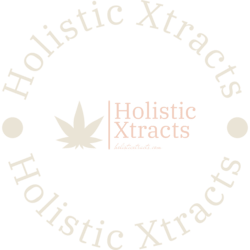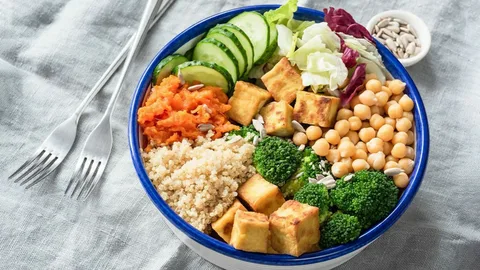Introduction
In recent years, the high-protein diet has become a popular choice among those looking to lose weight and enhance their overall health. High-protein diets are effective because they can help manage appetite, increase satiety, and enhance metabolic rate. This comprehensive guide will delve into the principles of a high-protein diet, outline a meal plan, discuss its benefits and potential downsides, and provide practical tips for incorporating more protein into your diet.
What is a High-Protein Diet?
A high-protein diet involves increasing the proportion of calories consumed from protein sources. Typically, these diets recommend that protein comprises 20-30% of total daily caloric intake, which is higher than the generally recommended 15%. This translates to consuming 100-150 grams of protein per day, depending on individual calorie needs.
Benefits of a High-Protein Diet
Enhances Weight Loss
High-protein diets are known for their ability to help decrease body weight. Protein-rich foods can increase feelings of fullness and reduce appetite, leading to a lower overall calorie intake.
Increases Muscle Mass and Strength
Adequate protein intake is crucial for muscle growth and maintenance, particularly important for those engaging in resistance training.
Boosts Metabolism
Consuming protein can lead to a higher thermic effect of food (TEF), meaning more calories are burned during digestion compared to fats and carbohydrates.
Improves Bone Health
Protein plays a vital role in maintaining bone health and strength, potentially reducing the risk of osteoporosis and fractures.
Lowers Blood Pressure
Studies suggest that higher protein intake may reduce blood pressure levels, which can decrease the risk of stroke and heart disease.
Helps in Recovery After Exercise
Protein helps repair muscle tissues damaged during exercise, aiding in recovery and growth.
High-Protein Foods to Include
Meat and Poultry
- Chicken breast
- Turkey
- Lean beef
- Pork loin
Seafood
- Salmon
- Tuna
- Shrimp
- Cod
Dairy Products
- Greek yogurt
- Cottage cheese
- Milk
- Cheese
Eggs
- Whole eggs are among the healthiest and most protein-rich foods available.
Legumes
- Beans
- Lentils
- Chickpeas
Nuts and Seeds
- Almonds
- Peanuts
- Pumpkin seeds
- Chia seeds
Sample High-Protein Diet Meal Plan
Day 1
- Breakfast: Greek yogurt with berries and a sprinkle of almonds
- Lunch: Grilled chicken salad with mixed greens, olive oil, and vinegar
- Dinner: Salmon with asparagus and quinoa
- Snacks: Cottage cheese with sliced peaches
Day 2
- Breakfast: Omelet with spinach, tomatoes, and feta cheese
- Lunch: Turkey wrap with whole-grain tortilla, lettuce, and avocado
- Dinner: Beef stir-fry with broccoli, bell peppers, and soy sauce
- Snacks: A handful of mixed nuts
Day 3
- Breakfast: Protein smoothie with whey protein, banana, and peanut butter
- Lunch: Lentil soup with a side salad
- Dinner: Pork loin with sweet potatoes and green beans
- Snacks: Hard-boiled eggs
How to Implement a High-Protein Diet
Increase protein gradually
Start by adding an extra portion of protein to each meal.
Choose high-quality protein sources
Opt for lean meats, low-fat dairy products, and plant-based proteins.
Balance with other nutrients
Ensure your diet also includes healthy fats and a good variety of vegetables and whole grains.
Stay hydrated
High protein intake requires more water to help flush out nitrogenous wastes.
Monitor your portion sizes
While protein is essential, too much can lead to excess calories.
Potential Downsides
While high-protein diets are safe for most people, they can pose risks for individuals with certain health conditions, such as kidney disease. High intake of red meat and full-fat dairy products, which are high in saturated fats, can also increase the risk of heart disease. Therefore, it’s essential to choose a variety of protein sources and consult with a healthcare provider before starting a new diet plan.
FAQs
How much protein do I need each day on a high-protein diet?
Typically, aim for 1.2 to 2.0 grams of protein per kilogram of body weight, depending on your activity level.
Can a high-protein diet help with weight loss?
Yes, by increasing satiety and reducing appetite, a high-protein diet can help you eat fewer calories and lose weight.
Are there any risks associated with a high-protein diet?
For healthy individuals, a high-protein diet is generally safe. However, it may exacerbate existing kidney problems and can lead to nutrient deficiencies if not well-balanced.
Can vegetarians or vegans follow a high-protein diet?
Yes, there are plenty of plant-based proteins such as legumes, tofu, tempeh, and seitan, that can be included in a vegetarian or vegan high-protein diet.
How can I increase protein in my diet without too many calories?
Opt for lean protein sources like chicken breast, turkey, low-fat dairy products, and plant-based proteins.
Is a high-protein diet suitable for everyone?
While beneficial for many, it’s not suitable for everyone, particularly those with certain health conditions like kidney disease. Always consult a healthcare professional before making significant diet changes.
Can a high-protein diet impact kidney function?
In people with pre-existing kidney disease, a high-protein intake can strain kidney function. However, for people with healthy kidneys, a high-protein diet typically does not cause harm.
Conclusion
A high-protein diet can be an effective way to lose weight, build muscle, and improve overall health. It promotes satiety, helps in maintaining muscle mass during weight loss, and has numerous health benefits. However, it’s essential to approach this diet plan with a balanced perspective, incorporating a variety of protein sources and maintaining a well-rounded diet to ensure long-term success and health.
- Jaw Fillers For A Defined Jawline Near Merton, Surrey - May 31, 2025
- Retinol Peel Near Croydon, Surrey - May 31, 2025
- What Is Love Bombing And How To Avoid Falling For It In New Relationships - May 30, 2025


